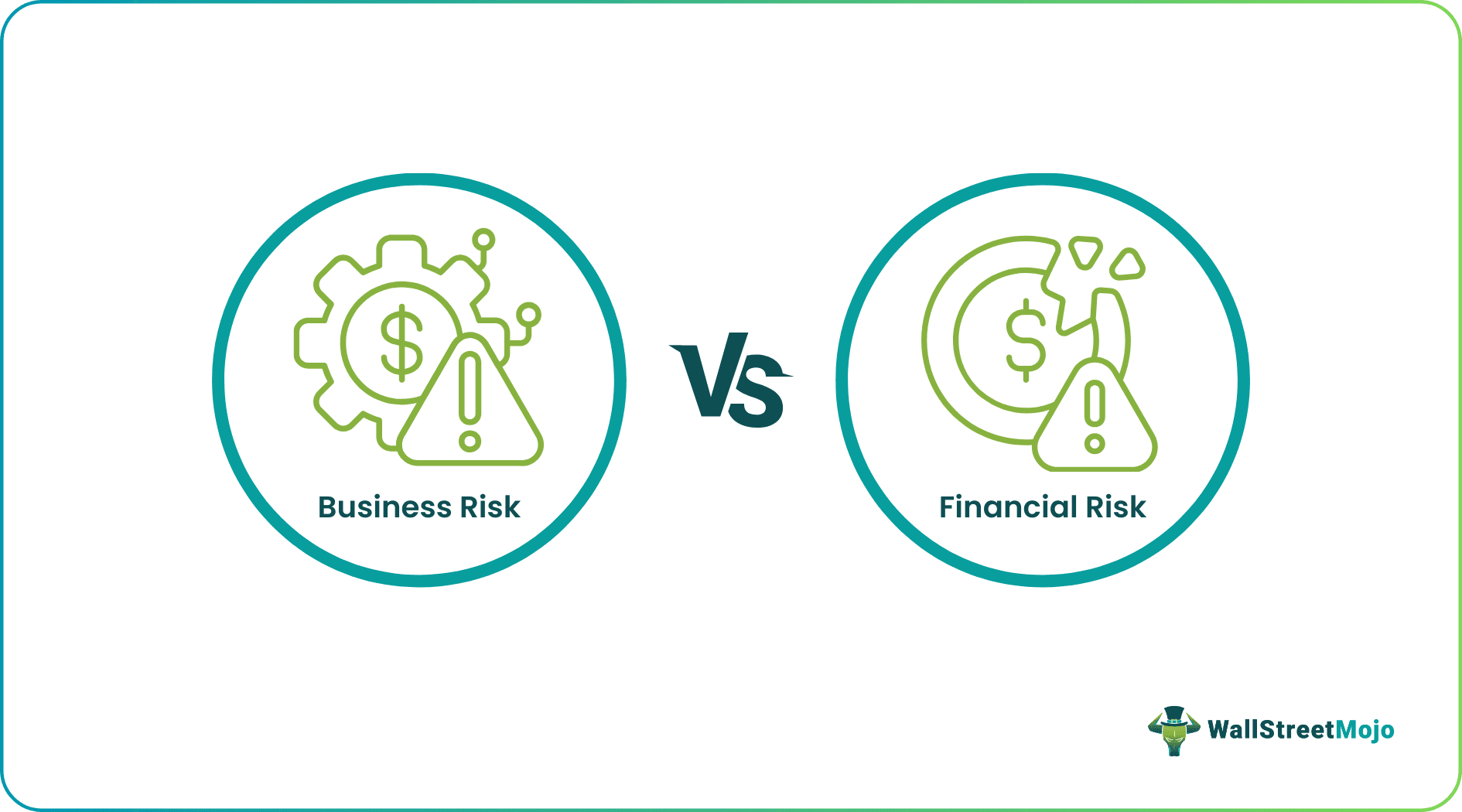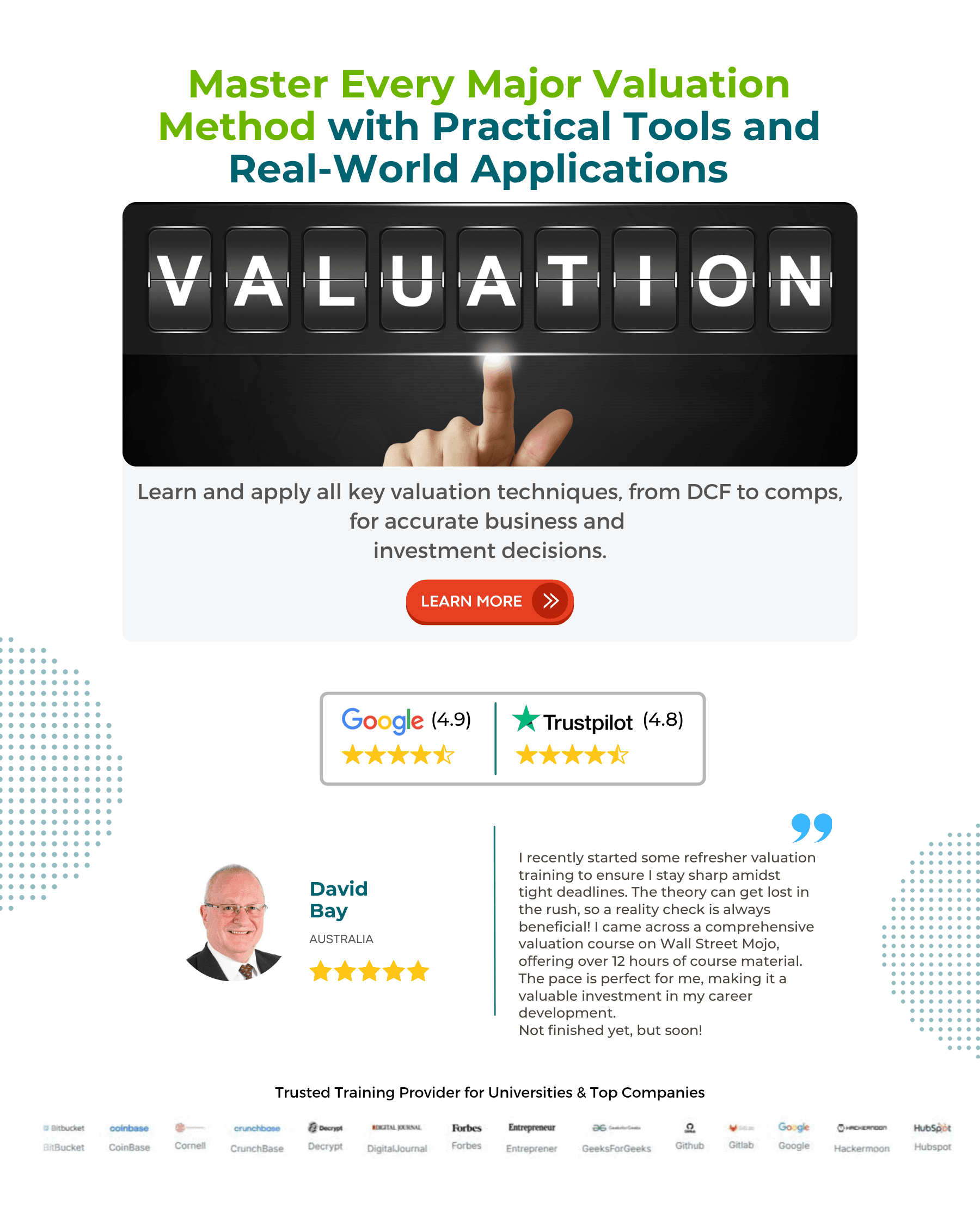Table Of Contents
Differences Between Business Risk and Financial Risk
Business risk of a company refers to the risk because of which the company's business value can be affected, be it via loss of market share, by new entrants who destroy our business, or by many other forms of market competition. In contrast, financial risk is the risk of a company that could not manage its finances and goes bankrupt because of liquidity risk, market risk, or inability to pay back its interests on time, which would probably trigger a fire sale.
Business is another name, the risk. But all risks are not similar. To run a business, the company owners have to deal with quite a lot of risks. Business and financial risk are the two most significant ones.
Business risk can be defined as the risk of whether the owner/s of the company would be able to run the business or not. We can call it a risk relating to operations and whether the company would be able to make profits or not.
On the other hand, financial risk can be defined as the risk of not being able to pay off a debt. When a firm wants to improve its financial leverage by allowing the debt to enter its capital structure, it suffers from financial risk. Financial risk is directly proportional to how much debt you allow into your capital structure.

Business Risk vs. Financial Risk Infographics

Key Differences
- Business risk can be defined as the risk associated with not being able to earn enough to pay off the business's expenses. On the other hand, financial risk can be defined as the risk associated with not being able to pay off the debt the firm takes to create financial leverage.
- Business risk can never be nil. It would always be there as long as the business exists. Financial risk can be reduced to a bare minimum if the debt can be reduced, and equity can be increased in a capital structure.
- Business risk includes risks like reputational risk, operational risk, strategic risk, etc. Financial risk includes risks like credit risk, liquidity risk, equity risk, etc.
- The variability can measure business risk in EBIT (as per situation). The financial leverage multiplier can measure financial risk.
- Business risk is related to the operations of the business. Financial risk is related to the capital structure of the business.
Business Risk vs Financial Risk - Comparative Table
| Basis of Comparison | Business Risk | Financial Risk |
|---|---|---|
| 1. Meaning | Business risk is the risk of not being able to make the operations profitable so that the company can meet its expenses easily. | Financial risk is the risk of not being able to pay off the debt that the company has taken to get financial leverage.
|
| 2. What it’s all about? | Business risk is purely operational. | Financial risk is related to the payment of a debt. |
| 3. Avoidable? | No. | Yes. There will be no financial risk if the firm doesn't take debt. |
| 4. Duration | The business risk will be there as long as the company operates. | The financial risk would be there until the equity financing is increased drastically. |
| 5. Why? | Every business wants to perpetuate and expand, and with continuation comes the risk of not being able to do it. | To generate better returns and tap into the lure of financial leverage, the company gets into debt and takes the financial risk. |
| 6. How to handle it? | By systemizing the process of production and operation and by minimizing the cost of production/operation. | By reducing debt financing and by increasing equity financing; |
| 7. Measurement | When there’s variability in EBIT;
| We can look at the debt-asset ratio and financial leverage multiplier. |
Conclusion
Business risk and financial risk can happen together, but for different reasons.
As you already understood, the business risk can't be wiped off; still, business exists. But financial risk can be wiped off entirely if the business doesn't take any debt while constructing its capital structure.
The wisest decision is to systemize the process so that the business risk can be pared down. And the capital structure also needs to be constructed so that the portion of the debt is enough to enable financial leverage but not so much to increase financial risk.

